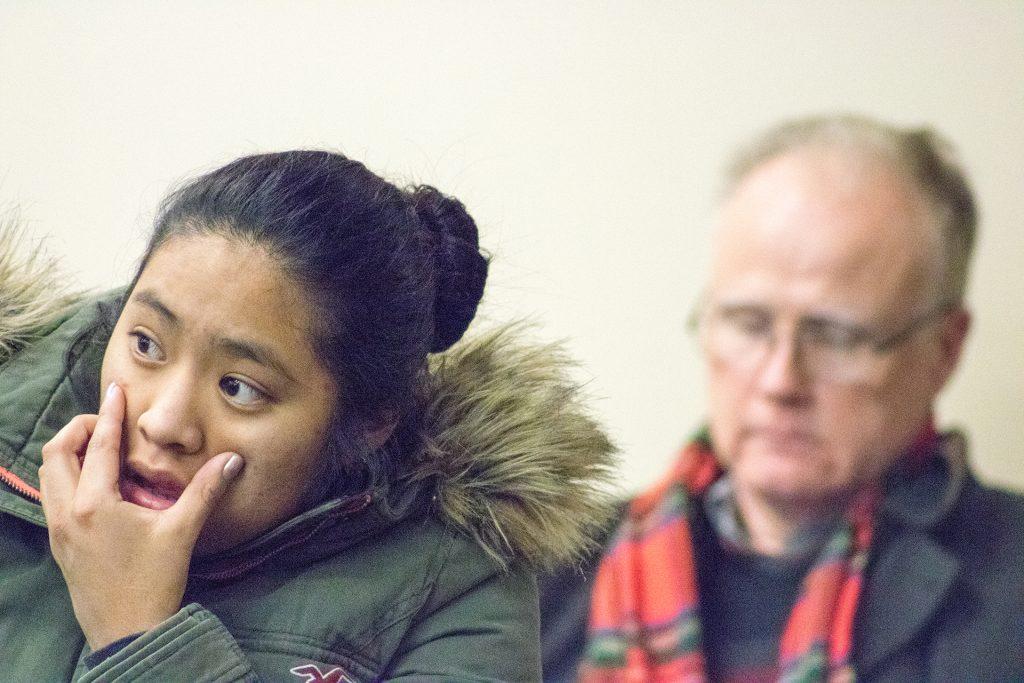All the seats in the Iowa City Public Library were filled Dec. 14 for a discussion about the state of immigrants in Iowa.
The forum was hosted by the Eastern Iowa Community Bond Project and Center for Worker Justice, “a collaborative project formed by the Immigration Advocacy Coalition of Iowa,” its website states.
Julia Zalenski, the group’s legal director, started the forum with a lecture titled “Immigration Detention and Due Process,” which covered immigrants facing legal issues.
“Today, nearly 1 in 100 worldwide were not born where they live, and in the United States, the rate is higher,” Zalenski said.
Zalenski said there is substantial human judgment that goes into the immigration process, especially given the current climate about immigration in the United States.
“People can be either detained or non-detained during their immigration court proceedings,” Zalenski said. “The initial bond decision is made by ICE when the person is taken into custody.”
RELATED: DACA repeal could affect UI student
Zalenski noted that in doing so, several important factors might affect the due process for defense, such as legal counsel, money, community and family support, ability to gather evidence in support of case, and being released from detention to access the resources.
“The government can’t deny people a hearing, but it can make it unbearable for people to assert their rights,” Zalenski said.
Once an immigration civil detention occurs, “a person accused of being deportable would face U.S. Immigration and Customs Enforcement custody, ICE detention, release on bond, and immigration court,” Zalenski said.
Daniel Vondra, an attorney focusing on immigration law, said the issue of detaining immigrants wasn’t so bad locally as it is nationwide.
“Frankly, locally in Johnson County it is not too bad,” he said. “But if you get out of Johnson County, there is more enforcement.”
Vondra said that access to the media can play a role in a detained-immigrant cases, because community response is very important.
Azucena Natareno, an immigrant from Guatemala, discussed her experience with being detained.
RELATED: Immigration hits home
Being in jail is very difficult, she said. She never knew what would happen, she said, and it was a very difficult and trying experience.
“It’s so difficult — not knowing what’s going to happen,” she said. “All these thoughts are going through your mind, ‘What’s going to happen next?’ ”
Natareno said feeling like her freedom had been taken was “awful.”
“One of the things I have been experiencing, not being American, not being white, not speaking English … I’m different,” she said.
But Natareno was fortunate enough to be released from the jail.
“Who is in the jail, and why they are, we all don’t know, it’s a black hole,” Vondra said. “What we are trying to do is to get into the jail and help our community.”
Zalenski said one useful thing is that the jail’s public record is online. So they could know who is in custody, and they could get the sense how many people need help.



